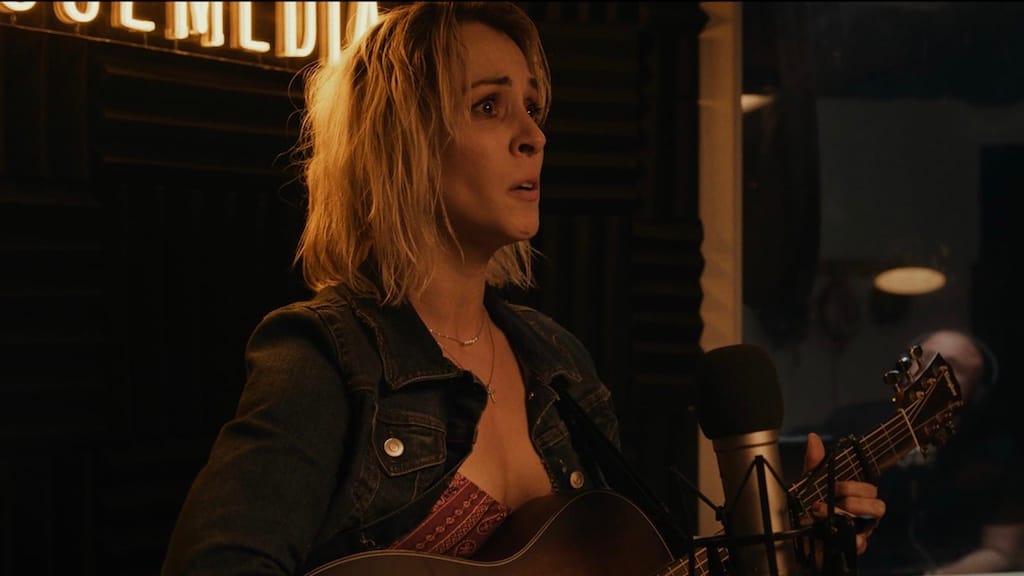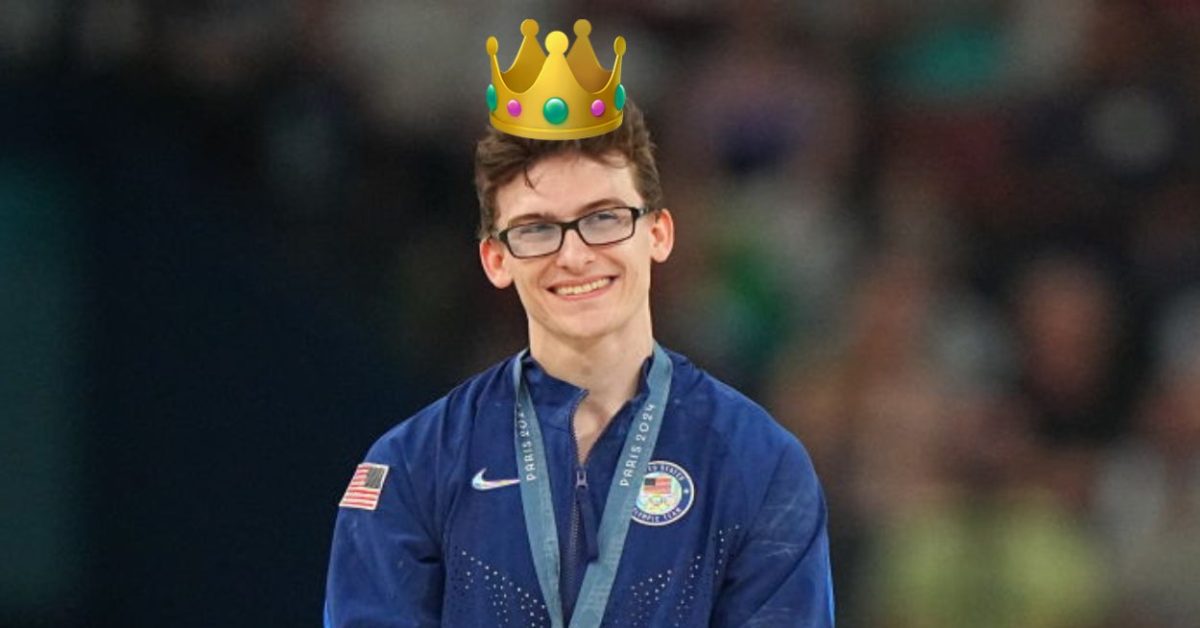
Emma Mackey Glows in Love Letter to Emily Brontë
Feb 17, 2023
There’s a very good chance that you’ve crossed paths with the literary legends that are the Brontë sisters at some point during your academic career. Their work is synonymous with required reading lists and by default, might also be synonymous with an eye roll. Regardless, their work earns its highly respected places in literary history. The more famous and far more prolific sister, Charlotte, wrote Jane Eyre, arguably one of the most famous pieces of literature ever. As you might deduce from the film in question’s title, Emily is not a story about that sister.
As a self-proclaimed literature lover, the idea of a movie about the lesser-known, more mysterious Brontë was incredibly intriguing, and it’s clear that writer-director Frances O’Connor thought so, too. She wanted to tell the story of a young woman who didn’t feel like her story was worth telling. Aside from the fact that she wrote the famous Gothic novel Wuthering Heights, very little is known about Emily Brontë. O’Connor saw this lack of information not as an obstacle, but as an opportunity to figure out the kind of person Emily might have been by interpreting her work. This means the film is more closely aligned with fiction than a biopic. For the origin story purists out there, this might be a bit irritating, but it actually feels like the proper and more entertaining way to honor and explore the life of such an enigmatic figure.
COLLIDER VIDEO OF THE DAY
The film’s opening scene is very deliberate as it starts at the debilitating end of the author’s life. At just 30 years old, Emily (Emma Mackey) was dying from tuberculosis. But it’s in her final few moments that the rebellious side she’s been told to suppress emerges and her complicated dynamic with her sisters is on full display. She had just finished writing Wuthering Heights—her first and only novel—and her protective yet judgmental sister Charlotte (Alexandra Dowling) is desperate for answers. “How did you write it?” she asks in a quivering voice. “I took my pen and put it to paper,” a severely ill Emily sharply responds, much to her sister’s agitation.
Image via Warner Bros.
RELATED: In Francis O’Connor’s ‘Emily,’ What’s Fact and What’s Fiction?
Charlotte’s voice is laced with disdain—not curiosity—when she questions her sister’s intentions. “Why is it so hard for you to believe that your sister could write something of merit?” Emily retorts. Deeply disturbed by her sister for writing such a scandalous story, Charlotte can’t help but exclaim, “It’s an ugly book. It’s base, and ugly, and full of selfish people who only care for themselves!” Emily’s response? “Good.” This exchange in Emily’s final moments speaks volumes about her life and sets the somber tone for the story that is about to unfold. It’s a heartbreaking way to start the film, but an effective one, especially as we come to learn how pivotal this exchange would be for Charlotte.
Mackey, best known for playing the gives-zero-effs Maeve in Sex Education, disappears into the role of the meek yet bold, hesitant yet adventurous Emily Brontë. She holds the burden of 1840s societal and familial expectations in her bones, rarely ever cracking a smile. She really only feels compelled to do so when she’s spending time in the luscious grassy hills of the small village of Haworth in West Yorkshire England either by herself speaking the parts of different characters she’s dreamed up, or sneaking outside her comfort zone with her imaginative brother Branwell (Fionn Whitehead).
Unlike practically everyone else in her life, Branwell encourages her creativity. Of course, his creative leanings are supported whereas Emily is literally dubbed “the strange one.” Charlotte shamelessly insults her sister and attempts to dissuade her from pursuing writing, which would prove to be incredibly ironic. Early on, we meet the biggest oppressive force in Emily’s life: her callous father Reverend Patrick (Adrian Dunbar). Hardened by the death of his wife and being a single parent raising four children (Amelia Gething plays Emily’s more cheerful sister Anne), Patrick is fixated on what he deems an appropriate education and tending to his congregation. Charlotte, visiting from school and eyeing up graduation, returns home to praise from their hard-to-impress father.
Image via Bleecker Street
News of Charlotte’s friend Ellen (Sacha Parkinson) staying with them plus the addition of William Weightman (Oliver Jackson-Cohen), Patrick’s assistant priest, is sensory overload for Emily. Unlike her sisters who salivate at the sight of the charming new curate, Emily is harder to impress. She’s frustrated by her sisters’ inauthentic behavior, as they light up with smiles and dish out compliments to William when he enters a room, yet criticize his sermons when he’s out of earshot. “But any man can speak. What I want to know is, can he actually do,” Emily boldly asks. Adding to this frustration is the fact that Patrick assigned William to tutor Emily in French.
Somewhat unsurprisingly, this friction between Emily and William blossoms into an intense and passionate love affair. The movie quickly takes the form of a romance as the two sneak off to the remote parts of the countryside to meet up. What is surprising, however, is the film’s depiction of Emily’s writing journey. Given that Wuthering Heights was the topic of discussion on her deathbed in the opening scene and is really the only work she is known for, it was interesting how her relationship with writing seemed to take a backseat to her relationships with her siblings and William.
Granted, Emily uses these relationships—especially the one with William—as inspiration for the core story of Wuthering Heights, which is about the tragic and forbidden relationship between Cathy and Heathcliff. That being said, the story craved more attention to Emily’s love-hate relationship with writing. The love she has for creating characters and scenarios is pure and contagious, and emphasized with warm hues when she is lying in bed with her sister talking about the craft. William’s extreme reaction when he realizes the paper he was reading was Emily’s poetic writing (he quite literally drops it on the floor in shame) is a great indication of how women’s writing was received during the time. But aside from these sweet and small moments peppered throughout the film, and a charming tease toward the end of Emily finally putting quill to paper, the “writing” of it all felt a bit like an afterthought.
Image via TIFF
The detailed production design and the homage to the titular character’s deep appreciation of nature are two of Emily’s strengths. The inclusion of and focus on the mysterious porcelain mask that the family was gifted in real life is also something Brontë admirers will recognize and appreciate. The power that a figurative and literal disguise can have over you—for better or worse—is explored in a very artistically satisfying way. Elements of the supernatural are briefly touched upon in a visually potent scene when Emily wears the mask and speaks to her family and friends while channeling her late mother. Similarly, Abel Korzeniowski’s score is beautiful and strategic. Interspersed between tense conversations Emily has with her sisters are blissful moments frolicking in nature underneath a sweeping score that never ceases to elevate the story.
Emily’s endearing bond with her brother, Branwell, is the beating heart of the film, making his increasing reliance on opium and alcohol all the more devastating. Whitehead shines as the pure and happy soul who loves nothing more than to dissect the power of storytelling while his head is in the clouds. It’s he who gives Emily the confidence to embrace her inner weird loudly and proudly. When she tells him that people think she is strange, he reminds her that everyone is strange if you look at them long enough. He convinces Emily to shed her timidity and yell “freedom in thought,” a powerful phrase that lights up a fire inside them and temporarily releases them of their woes. Branwell’s fearlessness is both his greatest strength and his Achilles heal, making him more of a cautionary tale.
Director Frances O’Connor effortlessly immerses the audience into Emily’s heart, soul, and mind in this refreshing, storybook-like origin story for a reclusive, misunderstood, and underappreciated author. Heavily influenced and inspired by Emily Brontë’s sole work, Emily is equally mysterious as it is charming as it honors the daunting and exhilarating feeling you get when you put a pen to a blank page.
Rating: B
Emily is in theaters now.
Publisher: Source link
Jennifer Lopez Asked About Turning 60, Age
Jennifer Lopez Asked About Turning 60, Age Never ask a woman her age, a man his salary, or Jennifer Lopez how she feels about turning 60. On Sunday, the actor was interviewed by Variety amid the release of her new…
Dec 21, 2024
Lala Kent Shares Text With Ally Lewber After James Kennedy’s Arrest
The BCU (Bravo Cinematic Universe) was shaken on March 3, 2023, when it was confirmed that Tom and Ariana had ended their nine-year relationship amid the revelation that he'd had a seven-month affair with Raquel. "I made mistakes, I was…
Dec 21, 2024
Vote For Your 2024 Person Of The Year
Vote For Your 2024 Person Of The Year One thing we can all agree on is that Donald Trump being named Time's Person of the Year was a terrible choice. So, I'm here to provide y'all with a worthy alternative.…
Dec 20, 2024
Plane Crash Near Buffalo Bills Player Dion Dawkins’ Property Kills One
Buffalo Bills Player Dion Dawkins Speaks Out Following Fatal Plane Crash on His PropertyFootball player Dion Dawkins is speaking out following a deadly plane crash in Aurora, N.Y. The Buffalo Bills offensive lineman missed part of practice on Dec. 19…
Dec 20, 2024











